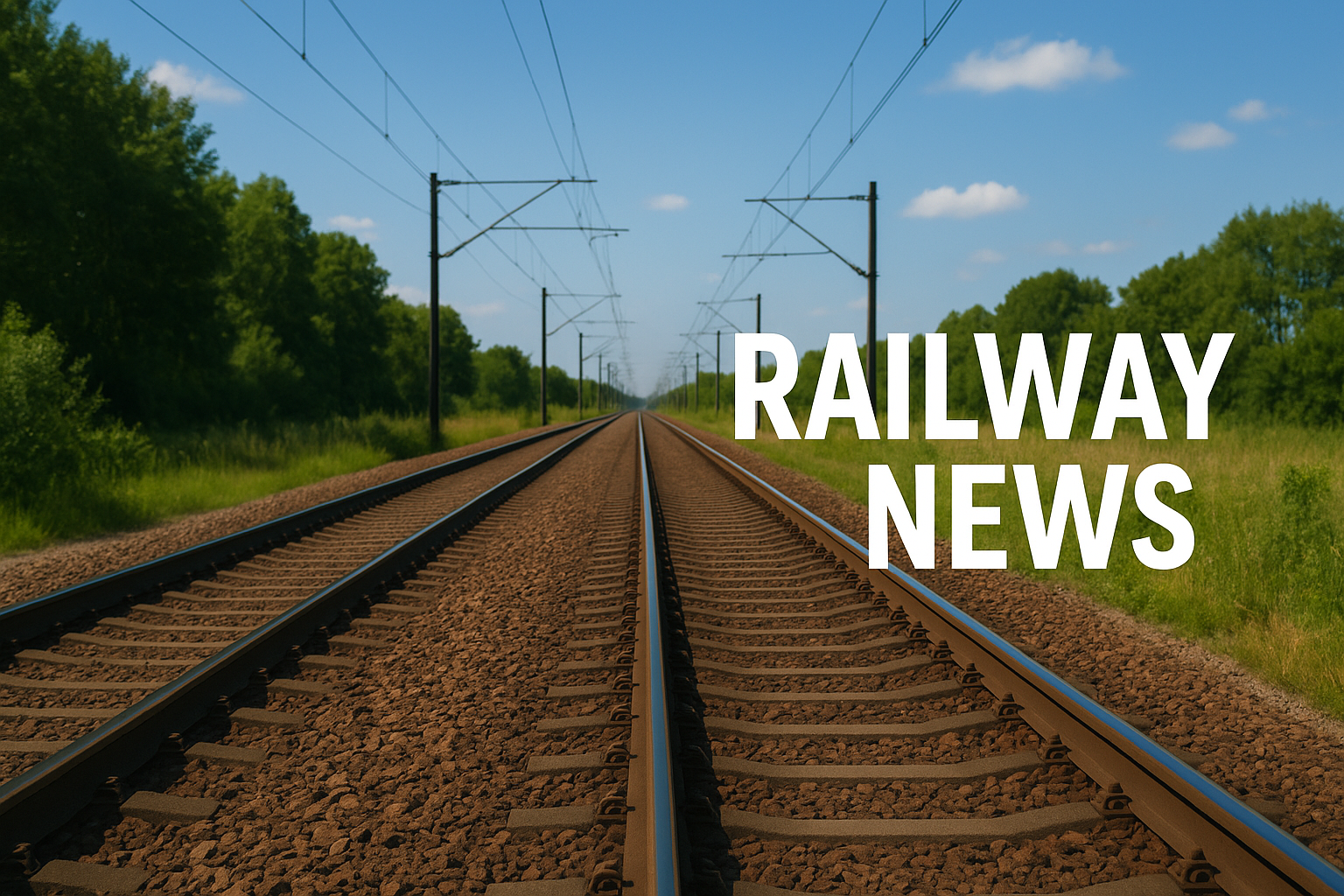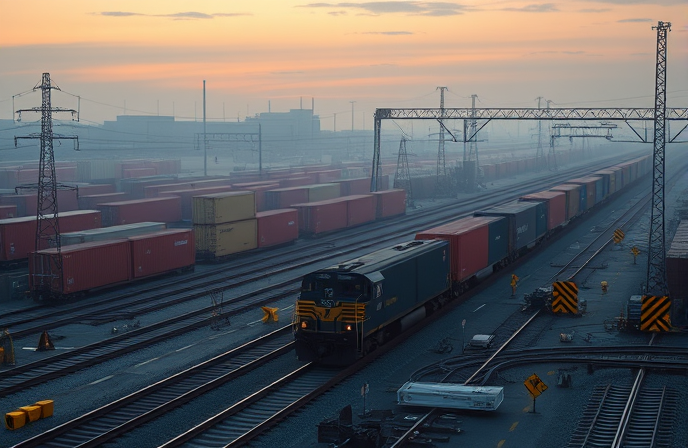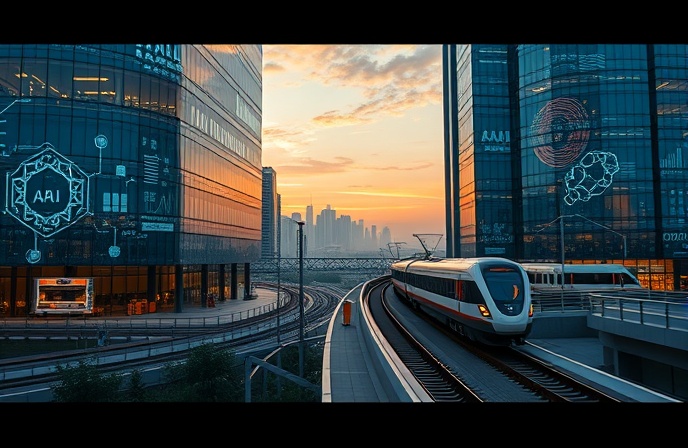Stadler’s Poland Plant: Rail Tech Innovation

The global railway industry is undergoing a significant transformation, driven by the need for increased efficiency, sustainability, and technological advancement. A key component of this modernization is the development and deployment of advanced traction power converters (TPCs) – the electronic systems that control the flow of electricity to a train’s motors. This article will explore the recent opening of Stadler’s new TPC plant in Białystok, Poland, examining its strategic importance to Stadler’s overall operations, the technological capabilities of the facility, its impact on the local economy, and the broader implications for the railway industry’s technological landscape. The establishment of this state-of-the-art facility represents a significant investment in the future of railway technology and highlights the growing importance of Poland as a hub for rail manufacturing and innovation. The focus will be on analyzing the plant’s contribution to Stadler’s production capacity, the skilled workforce it employs, and the technological advancements it fosters, ultimately highlighting its role in shaping the future of railway systems worldwide.
Stadler’s Strategic Investment in Poland
Stadler’s decision to establish a dedicated traction power converter plant in Białystok demonstrates a strategic commitment to enhancing its manufacturing capabilities and supply chain efficiency. The 7,000m² facility is not merely a production site; it functions as a competence center for the entire Stadler Group, centralizing the design, development, and production of TPCs. This centralized approach allows for economies of scale, improved quality control, and faster response times to market demands. The plant’s proximity to other Stadler production sites further streamlines logistics and reduces lead times. This strategic positioning is crucial for Stadler to meet its ambitious goal of equipping over 1,000 vehicles with its converters by mid-2026. The plant’s output will not only benefit Stadler’s own rolling stock production but will also cater to the needs of the broader railway industry, including those specialized vehicles such as rack and pinion and narrow-gauge trains.
Advanced Technology and Testing Capabilities
The Białystok plant is equipped with cutting-edge technology that facilitates the efficient and precise manufacturing of high-quality TPCs. Beyond production, a key aspect of the facility is its integrated laboratory. This allows for rigorous testing of the converters under simulated real-world conditions, ensuring performance reliability and safety before deployment in actual rail vehicles. This rigorous testing process minimizes the risk of failures in the field, reduces maintenance needs, and contributes to the overall cost-effectiveness of Stadler’s products. The laboratory’s capabilities also enable continuous research and development, allowing Stadler to stay at the forefront of TPC technology and innovation.
Economic Impact and Workforce Development
Stadler’s investment in Białystok has a significant positive impact on the local economy. The plant is expected to create up to 250 new jobs, boosting employment and stimulating related industries. Stadler is actively recruiting candidates with diverse skill sets, including expertise in construction, electrical and control engineering, software engineering, system engineering specializing in power electronics, and commissioning and service. This commitment to local workforce development is further evidenced by Stadler’s planned collaboration with the Białystok University of Technology, fostering the growth of specialized skills and ensuring a continuous supply of qualified personnel for the industry. This collaboration underscores Stadler’s long-term commitment to the region and its contribution to creating a skilled workforce in the railway sector.
Sustainability and the Future of Railway Technology
The production of efficient and reliable TPCs is not only crucial for the performance of rail vehicles but also contributes to environmental sustainability. Electric locomotives, powered by advanced TPCs, represent a significant step towards reducing the environmental impact of rail transportation. The Białystok plant’s focus on continuous improvement and innovation ensures that Stadler remains at the forefront of developing more efficient and environmentally friendly TPCs. This commitment to sustainability aligns with the broader industry trend towards decarbonization and reflects Stadler’s dedication to environmentally responsible practices in the railway sector.
Conclusion
The inauguration of Stadler’s traction power converter plant in Białystok marks a significant milestone for both Stadler and the broader railway industry. The plant’s strategic location, advanced technological capabilities, and commitment to workforce development position it as a key player in the global railway market. The facility’s focus on producing high-quality, reliable TPCs, combined with its integrated testing laboratory and commitment to research and development, will undoubtedly contribute to the advancement of rail technology and its environmental sustainability. The creation of hundreds of skilled jobs and the collaboration with local universities are testament to Stadler’s positive economic impact on the region. The overall success of this project will be instrumental in helping Stadler reach its ambitious production goals and solidify its position as a leading provider of rail technology. The Białystok plant stands as a model for successful collaboration between industry and academia, emphasizing the importance of investing in skilled labor and advanced technologies to drive innovation and progress in the railway sector. The future of rail transportation is undeniably linked to technological advancements, and Stadler’s commitment in Białystok signifies a significant step toward a more efficient, sustainable, and technologically advanced railway system globally.



